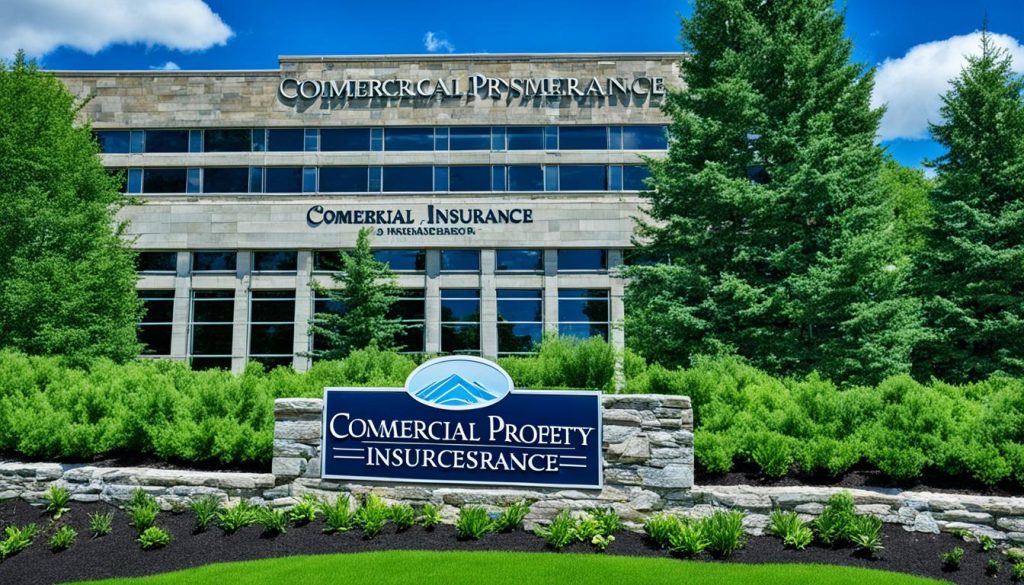Protect your business assets if Understand the importance of business insurance
As a business owner, you understand the importance of safeguarding your assets and ensuring the long-term success of your enterprise. One crucial element in achieving this is having the right business insurance in place. With the myriad of risks that businesses face, from property damage to liability claims, having adequate insurance coverage is essential to protect your business from potential financial losses.
Business insurance, also known as enterprise insurance or commercial insurance, provides coverage that can help you manage unforeseen events and mitigate risks. Whether you run a small business or a large corporation, having the right insurance for your specific needs can make all the difference in the event of an accident or lawsuit.
Insurance for businesses typically comes in the form of comprehensive business protection plans that combine various types of coverage. This can include commercial property insurance, which protects your physical assets, such as your building or equipment. General liability insurance, on the other hand, covers damages caused by your business to third parties, such as personal injury or property damage.
Key Takeaways:
- Business insurance is crucial for protecting your assets and ensuring long-term success.
- Having the right coverage can help mitigate potential financial losses from accidents or lawsuits.
- Business protection plans often include commercial property and general liability insurance.
- Choosing the right insurance for your specific needs is essential for managing risks effectively.
- By investing in business insurance, you can have peace of mind and focus on running your business without worrying about unforeseen events.
Types of Business Insurance You Need to Consider
When it comes to protecting your business, having the right insurance coverage is crucial. There are two main types of business insurance that you need to consider: liability insurance and property insurance.
Liability insurance provides coverage for damages caused by your business to others, such as personal injuries or property damage. This type of insurance is essential for businesses as it protects you from potential financial losses resulting from accidents or mishaps. It covers expenses related to legal claims and can help safeguard your business assets.
Property insurance, on the other hand, covers damages to your own business property. This includes buildings, equipment, inventory, and other physical assets. With property insurance, you can rest assured that if an unfortunate event such as a fire or theft occurs, you won’t have to bear the entire financial burden.
It’s important to note that comprehensive liability and property insurance coverage is necessary to ensure adequate protection for your business. Each business has its own unique risks, and considering specialized forms of liability coverage can provide additional security. For example, fidelity insurance protects against risks such as employee theft or fraud.
Here’s an overview of the types of business insurance you need to consider:
| Type of Insurance | Description |
|---|---|
| Liability Insurance | Provides coverage for damages caused by your business to others, such as personal injuries or property damage. |
| Property Insurance | Covers damages to your own business property, including buildings, equipment, and inventory. |
| Fidelity Insurance | Protects against risks such as employee theft or fraud. |
Having the right types of business insurance in place is essential for asset protection and ensuring peace of mind in case of unexpected events. By understanding your business’s unique risks and securing comprehensive coverage, you can mitigate potential financial losses and focus on running your business smoothly.
Why Business Insurance is Important for Your Business
Business insurance plays a crucial role in providing financial protection for your business, especially in the face of unexpected events. Whether it’s a natural disaster, theft, or even a global pandemic, such events can significantly impact a business and its financial stability. Without insurance coverage, the costs incurred from these unforeseen circumstances could be devastating, potentially leading to bankruptcy. To safeguard your company and ensure its ability to recover from potential financial losses, business insurance is essential.
One of the key benefits of business insurance is its role in risk management. By having the right insurance coverage, you can effectively manage the risks that your business faces daily. Insurance provides a safety net that helps protect your assets and allows your business to continue its operations, even in challenging circumstances.

Take the example of a small business owner who experiences a fire at their office premises. Without business insurance, they would be responsible for covering the costs of repairing the property, replacing damaged equipment, and even compensating employees for lost wages during the closure. This financial burden can be overwhelming, potentially forcing the business owner to shut down operations.
Business Interruption Insurance
“Business insurance helps safeguard your company and ensures that you can recover from potential financial losses.”
Business interruption insurance is a type of coverage that provides financial assistance when your business is temporarily unable to operate due to a covered loss. It typically helps cover ongoing expenses, such as payroll, rent, and loan payments, as well as any lost revenue during the period of interruption.
By having business interruption insurance, you can avoid the financial strain that would otherwise occur when unexpected events disrupt your operations. This coverage can help you maintain stability and continuity, enabling a smoother recovery process.
In addition to financial protection, business insurance also offers peace of mind. As a business owner, you can focus on running your operations knowing that you have a safety net in place. This allows you to navigate through risks confidently, knowing that you have a plan in place to mitigate potential financial losses.
Risk Management and Unexpected Events
Unexpected events can happen to any business, regardless of its size or industry. Therefore, having business insurance is essential for all types of organizations. It helps to minimize the impact of unforeseen circumstances and provides a layer of financial security.
For instance, imagine a restaurant owner facing a lawsuit due to a customer slipping and falling on a wet floor. Without the appropriate liability insurance, the business owner would have to pay for legal expenses and potential claims out of pocket. This financial burden could be substantial and even jeopardize the future of the business.
With the right business insurance coverage, such as general liability insurance, the business owner would have financial protection against liability claims and legal expenses. This not only safeguards the business itself but also provides peace of mind for the owner.
How to Find the Right Business Insurance
When it comes to finding the right business insurance, it’s important to assess your specific business needs and risks. Every industry has its unique set of challenges and vulnerabilities, so it’s crucial to consider industry-specific coverage that addresses these risks effectively.
Start by shopping around and comparing insurance providers. Don’t settle for the first policy you come across. Take the time to explore different options and find the coverage that best suits your business at competitive rates.
While price is a crucial factor, don’t overlook the importance of customer service and claims process. A reliable insurance provider should offer exceptional customer service, readily available to assist you with any concerns or queries. Additionally, a streamlined claims process ensures that you can easily navigate the insurance process when the need arises.
Reading the policy carefully is a crucial step before making any commitments. Make sure you understand the coverage provided and identify any potential coverage gaps that may require additional coverage. It’s better to be aware of these gaps beforehand, as they can pose significant risks to your business if left unaddressed.
Lastly, seeking expert advice from professionals in your industry can provide valuable insights into the insurance options that would best suit your business. These experts can offer guidance on the coverage you need, ensuring that you have the right insurance to protect your business effectively.
Key Considerations When Finding the Right Business Insurance
| Considerations | Action |
|---|---|
| Assess Business Needs and Risks | Identify specific risks and vulnerabilities in your industry and evaluate the coverage required. |
| Shop Around | Compare insurance providers to find the best coverage at competitive rates. |
| Customer Service | Choose an insurance provider known for excellent customer service, ensuring they are responsive and helpful. |
| Claims Process | Opt for an insurance provider with a streamlined claims process for easy navigation and prompt settlements. |
| Coverage Gaps | Thoroughly read the policy to identify any potential coverage gaps and address them with additional coverage if necessary. |
| Expert Advice | Consult industry experts for guidance on the most appropriate insurance options for your business. |
“Finding the right business insurance requires careful consideration of your specific needs and risks. By taking the time to assess industry-specific coverage, comparing providers, and seeking expert advice, you can ensure that your business is well-protected.”
Different Types of Business Insurance to Consider
When it comes to protecting your business, having the right insurance coverage is crucial. There are various types of business insurance policies available, each designed to address different aspects of your business’s needs and risks. Let’s explore some of the key types of business insurance you should consider:
1. General Liability Insurance
General liability insurance provides coverage for legal costs and damages in case of accidents, injuries, or claims of negligence. This type of insurance protects your business from costly lawsuits and helps ensure that your assets and finances remain secure.
2. Cyber Insurance
In today’s digital world, cyber insurance is becoming increasingly important. It provides coverage against data breaches, cyber attacks, and other cybersecurity incidents. Cyber insurance helps cover the costs of data recovery, legal expenses, and reputational damage that can occur as a result of a cyber incident.
3. Commercial Property Insurance
Commercial property insurance protects your business property, including buildings, equipment, inventory, and furniture, against damage or loss due to fire, theft, vandalism, or natural disasters. It ensures that your operations can continue smoothly even in the face of unforeseen events.
4. Commercial Auto Insurance
If your business owns vehicles or uses them for business purposes, commercial auto insurance is essential. It provides coverage for damages or injuries caused by your company’s vehicles, ensuring that you are protected in case of accidents or other incidents.
5. Workers’ Compensation Insurance
Workers’ compensation insurance is necessary if you have employees. It provides financial support for medical expenses and lost wages in the event that an employee is injured or becomes ill on the job. Workers’ compensation insurance helps protect both your employees and your business.
6. Public Liability Insurance
Public liability insurance covers claims for property damage or bodily injury caused by your business operations. Whether it’s a customer slipping and falling in your store or damage caused by your employees at a client’s site, public liability insurance ensures that you are covered for such incidents.
7. Business Income Insurance
Business income insurance, also known as business interruption insurance, provides coverage for lost income when your business cannot operate due to a covered loss, such as a fire or natural disaster. It helps you maintain cash flow and cover essential expenses during the downtime.
8. Professional Liability Insurance
Professional liability insurance, also known as errors and omissions insurance, is critical for businesses that provide professional services. It covers claims of mistakes, negligence, or inadequate work, ensuring that your business is protected from potential lawsuits and financial losses.
Having the right combination of business insurance policies tailored to your specific needs is vital. Assess your business risks, consult with an insurance professional, and choose the insurance coverage that provides comprehensive protection for your business.

The Cost of Not Having Business Insurance
Many businesses overlook the importance of insurance, leaving themselves vulnerable to significant financial strain and even bankruptcy in the face of unforeseen events. The lack of understanding and trust between businesses, insurers, and insurance agents often leads to inadequate coverage, leaving businesses exposed to potential risks. This, in turn, can result in businesses having to bear the full cost of damages and legal claims out-of-pocket.
Uninsured businesses may find themselves ill-prepared to handle the financial consequences of unexpected events. Whether it’s a natural disaster, a lawsuit, or a cyber attack, the financial burden can be overwhelming, potentially leading to the closure of the business. Without the safety net of insurance, businesses may struggle to recover and may face a long and difficult path towards financial stability.
One of the primary reasons for businesses neglecting insurance is a lack of understanding about its importance and the specific coverage needed. Insurance policies can be complex, and it’s understandable that business owners may feel overwhelmed or uncertain about what coverage they require. Additionally, there can be a lack of trust between businesses and insurers, which further hinders the adoption of comprehensive insurance plans.
“The lack of understanding and trust between businesses, insurers, and insurance agents often leads to inadequate coverage.”
Another factor contributing to the problem is the presence of insurance coverage gaps. Businesses may mistakenly believe they have sufficient coverage, only to realize too late that certain risks or incidents are not included in their policies. This can leave them exposed to substantial losses and unexpected expenses.
It is essential for businesses to recognize the importance of insurance and take steps to ensure they have the right coverage in place. By partnering with trusted insurance advisors and agents who can offer expert guidance, businesses can navigate the complexities of insurance and make informed decisions about their coverage needs.
Having business insurance safeguards not only the company’s assets but also its long-term financial stability. It provides the peace of mind and reassurance that, in the event of unforeseen circumstances, the business will have the necessary resources to recover and continue operations.
In conclusion, the cost of not having business insurance can be devastating. Uninsured businesses expose themselves to significant financial strain, bankruptcy, and even closure. It is imperative for business owners to understand the importance of insurance, address any coverage gaps, and establish a comprehensive insurance plan to protect their assets and ensure their financial security.
Conclusion
Business insurance plays a critical role in protecting your valuable assets and ensuring the financial security of your business. By understanding the specific risks your business faces and selecting the right insurance coverage, you can effectively manage those risks and minimize potential financial losses. It is essential to assess your business needs, thoroughly research insurance providers, and secure comprehensive coverage that can adapt as your business grows.
Having the right insurance in place provides peace of mind, allowing you to focus on running your business without constantly worrying about unforeseen events. With business insurance, you can navigate through challenging circumstances, such as natural disasters, theft, or even pandemics, knowing that you have a safety net to rely on for financial protection.
Investing in risk management and prioritizing financial security through business insurance ensures that your company is well-protected from potential bankruptcies caused by unexpected events. Business insurance serves as a shield, safeguarding your assets and enabling your business to recover swiftly from any setbacks.
In conclusion, don’t underestimate the importance of business insurance. Take the time to understand your business risks, shop around for the right coverage, and secure comprehensive insurance plans that align with your specific needs. By doing so, you can ensure the long-term stability and success of your business, leaving you free to pursue your goals with confidence and peace of mind.
FAQ
Why is business insurance important?
Business insurance is important because it provides financial protection when unexpected events occur, such as natural disasters, theft, or pandemics. It helps safeguard your company, protect assets, and ensure you can recover from potential financial losses.
What are the main types of business insurance?
The main types of business insurance are liability insurance and property insurance. Liability insurance covers damages caused by the insured to others, while property insurance covers damages to the insured’s own property.
How do I find the right business insurance?
To find the right business insurance, assess your specific business needs and risks, consider industry-specific coverage, shop around and compare insurance providers, and seek advice from experts in your industry. Look for good customer service and a streamlined claims process.
What types of business insurance should I consider?
Several types of business insurance to consider include general liability insurance, cyber insurance, commercial property insurance, commercial auto insurance, workers’ compensation insurance, public liability insurance, business income insurance, and professional liability insurance.
What is the cost of not having business insurance?
The cost of not having business insurance can be significant, leading to financial strain and even bankruptcy. Businesses without insurance may have to pay out-of-pocket for damages and legal claims, resulting in potential financial losses and gaps in coverage.
